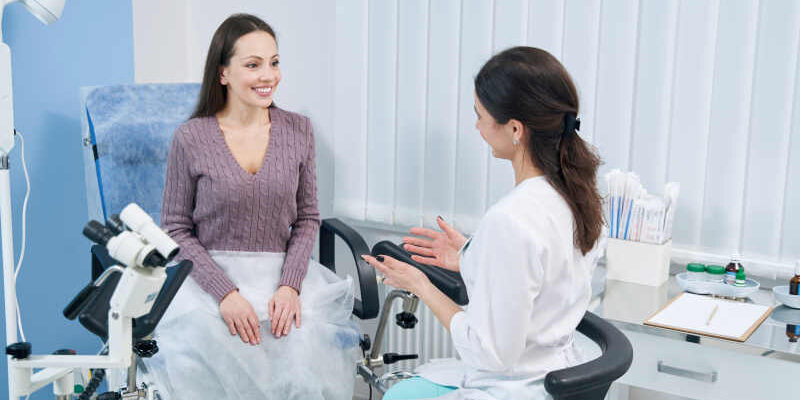There is a lot of contradicting information for women regarding how frequently you should see your gynecologist. You know you should go to the dentist every six months and have a physical every year. Our board-certified OB/GYNs at High Desert OB/GYN want to clear the air.
Routine Gynecological Appointments
The truth is that your OB/GYN visits are an important component of your entire health team, despite the fact that it’s simple to think of your gynecologist as someone you go to when you need birth control or if you’re pregnant or trying to get pregnant.
New to Seeing an OB/GYN
In general, specialists advise girls to start seeing a gynecologist in their teen years (between 13 and 15) if they have any concerns about their reproductive system. Unless medically necessary, pelvic exams are typically not part of these consultations. Rather, it’s an opportunity for the young woman to meet her gynecologist and get clarification on issues like:
- What menstruation-related behaviors are acceptable and unacceptable
- What to anticipate as a teenager and during times of hormone transition
- Information on sexuality and birth control, including STDs
- Building trust and rapport with the OB/GYN provider will help you get to know them better during these encounters.
Common Pap Smears
Pap smears and complete pelvic exams are normally not advised until age 21. Every woman should get a baseline Pap smear starting at age 21. Dr. Ahmadinia might advise repeat testing every one to three years, depending on your medical history and the outcomes of this initial examination.
Well-woman Examinations
Annual well-woman exams with your gynecologist are advised by the American College of Obstetricians and Gynecologists. Depending on your needs, your doctor performs a Pap smear at this time as part of an annual pelvic checkup.
A breast exam is also part of this examination to look for changes in your breast tissue. Your OB/GYN will also assist you in setting up your annual mammography screening if you are over 40.
Discussing any worries you may have regarding menopause, endometriosis, fibroids, irregular periods, birth control, fertility, and other issues with your reproductive system during your well-woman visit is also a fantastic idea.
Additional Occasions to Visit the OB/GYN
We at High Desert OB/GYN are aware that every woman has unique needs. It’s vital to consider additional factors that can affect how frequently you should make appointments when planning your visits to our office. Look at this more closely.
Different Phases of the Reproductive Cycle
It’s crucial to talk with your OB/GYN about your reproductive health if you’re at the point where you’re ready to start a family and want to become pregnant. From preconception counseling to postpartum care, our team provides a broad range of obstetrics treatments.
You should make more OB/GYN appointments if you’re having trouble conceiving. Your doctor at High Desert OB/GYN recommends treatments after determining the underlying cause or causes.
Troublesome symptoms including hot flashes, vaginal dryness, and prolapse may also cause women who are approaching perimenopause and menopause to seek medical attention. For women who are at this later stage of the reproductive cycle, our team has several solutions to provide.
If you require assistance at any point in the course of your reproductive life, there is no need to wait until your annual exam. Our staff has a range of testing, pharmaceutical, and robotic surgical alternatives that can provide you with the solution you need.
Medical Issues
Additionally, remember that you shouldn’t wait until your annual well-woman visit if you experience any gynecological medical issues. The best course of action is always to seek medical assistance as soon as possible. There are a few issues that can make you come in:
- Uncomfortable sexual encounters or other problems related to sexual dysfunction
- Abnormal uterine hemorrhage, such as painful, excessive bleeding or no bleeding at all
- More severe than usual menstruation cramps in the abdomen
- Vaginal infections and other problems, such as strange discharge
Additionally, if you engage in unprotected sex or intercourse with multiple partners, you should schedule a private STD testing appointment. The staff at High Desert OB/GYN schedules several STD testing in accordance with the CDC’s recommendations.
Call the office of Dr. Reza Ahmadinia or schedule a consultation right away to learn more about when to visit your gynecologist.





